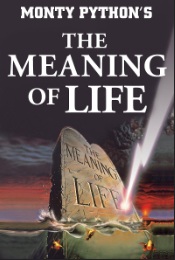
Philosophy of Mind. Philosophy of Science. Ethics. Political Philosophy.
怎样衡量不同工作的价值?
用英文写的发给友人的一封信(纯粹是碎碎念而已,既不是我目前work on的内容,也不是什么很rigorous的argument)。试着翻译一下。
Hi Tim,
You said the friend that you talked to (who’s doing medicine or something), after learning that you do maths and philosophy, told you that what you are doing concern only your interests and is only about yourself. I think there are two immediate replies to this, 1) works in fundamental maths or philosophy can have tremendous instrumental consequences, we just need the technology to catch up to apply them, 2) there is not a small number of people in the world that are concerned with debates in maths and philosophy, these debates matter to them, and you making contributions to these fields could potentially affect their lives, increasing their utility.
Tim在念基本数学和哲学。他一个学医的朋友跟他说这些都是为了你自己而学的,对别人(社会)没有用处。我跟他说有两个很直接的回复。1) 谁说基本学科没用?说不定以后有用现在没用而已,比如可能要等技术赶上来才能用到更深的数学。2)世界上有一部分人对于这些学科是很关心的:如果有谁解决了哥德巴赫猜想,那全天下数学爱好者一定欢欣鼓舞,他们的utility(幸福感?)会有很大的提升。
A further reply I can think of is what I call the ‘principle of irreplaceability’ (I thought of this myself, partly inspired by Bernard Williams). Yes the average doctor might do more good to people, in utilitarian terms, than the average philosopher. But does this stand counterfactually? If a doctor didn’t become a doctor, perhaps because he didn’t get into med school, someone else would have done so and become a doctor. Thus counterfactually, the utility one produces from being a doctor is no greater than if one were not a doctor. Now, obviously you can be a great doctor, and your counterfactual replacement, lets call him ‘R’, may be a mediocre doctor. Maybe you will figure out some medical breakthrough, and R might be so bad as to mistreat patients and lead them to suffer. But why not say the same about being a philosopher?
接下来我介绍一个自己想出来的东西,可替代性。简单来说,就是你在这一个时空做了医生,而在另一个时空 ('counterfactually') 没做成医生,那对于utility有什么影响?好像没有。除非如果你做医生,你会成为一个非常好的医生,而在另一个时空替代你的人是一个庸医。可是如果是这样的话,为什么选择做哲学家不也这么说呢?如果我做哲学家,我有可能很成功,而我的替代者可能很平庸。(这样burden of proof就扳过来了。)
My principle of irreplaceability states that, the expected value of choosing to work in any profession (say doctor) can be captured by a function of the potential benefit it brings to the world, the probability of bringing about the benefit, and subtracting from this the counterfactual possibility of you failing to become a doctor, and someone else took your spot. Now I give a rough formula: expected utility of pursuing a career in medicine = u(becoming a great doctor) x p(becoming a great doctor) + u (becoming a mediocre doctor x p(becoming a mediocre doctor) – expected utility of someone else taking your spot. For an example, see appendix.
你可能猜到我要说什么了(做哲学家的可替代性比做医生要低)。我用微观经济学里常见的方法,在这里给出一个公式:预期效用 = 成为好哲学家的可能性 x 成为好哲学家带来的效用 + 成为平庸哲学家的可能性 x 成为平庸哲学家带来的效用 - 你的替代者成为哲学家的预期效用。这样一来我就把一个本来很抽象的东西,不同工作的价值,变成了一个公式(formalised),这样我们就能衡量且比较了。
Once the expected value is formulated this way, we can see that, to increase it, we don’t just have to work in a profession that on average brings high utility. We can also work in professions where there could potentially be high utility, even if the chances are low. Solving Goldbach’s conjecture is very unlikely, but it were done, the utility increase would be tremendous. Or we can work in places where we have more irreplaceability. Being a great philosopher or mathematician can be very much irreplaceable. Philosophical progress to me is not gradual and incremental, it’s stage-like. For example, Rawls’ A Theory of Justice single-handedly served as the catalyst for the revival of political philosophy in the last few decades. Subsequent works in this field seems to revolve around his ideas. But in the past few years we are seeing a waning of this effect. Progress in political philosophy is becoming flat again, awaiting for the next breakthrough. Another example is Gettier’s paper on justified true belief.
要取得很高的预期效用,我们不一定要做医生。医生当然有很高的机率能给社会带来很好的价值。可是做数学或哲学一旦做得好,带来的价值是非常高的。为什么呢?因为哲学的发展是处于上-平-上-平(想象一条线)的状态的。 我举两个例子。一个是Rawls的大作A Theory of Justice,直接导致了政治哲学的第二春,其后几乎所有的政治哲学研究都离不开这本书。还有就是Gettier这个怪人写的一篇寥寥数页的论文,以一己之力带动了知识论的发展。这里也可以看出来,做哲学家的替代性是比较低的。对于大部分的优秀科学家而言,就算他们不存在,别人也能做出他们的研究(只是时间的问题),因为科学的东西就在那里,这个人没有研究到,下一个人(或下下个)也是可以研究到的。哲学则不同了...政治哲学如果没有Rawls,万古如长夜啊!
所以高价值+低替代性导致做哲学家的预期效用其实比常人想象的要高。我承认这是有主观性的。你怎么衡量这些variables见仁见智了。
In contrast, I think progress in medical science is largely linear and we can expect what kind of progress, e.g. a vaccine for Covid, will be achieved in a precise timeline (according to my limited knowledge). More broadly speaking, I would give a similar argument for progress in the natural sciences. A PhD in molecular biology works in the lab for four years, gets some results and writes his thesis on it. Smooth and steady, and very replaceable. Note that I am not saying that empirical works don’t need creativity, I’m saying that empirical problems are addressed different from philosophical or mathematical problems, i.e. they can be addressed empirically (which is what enables so much progress in the empirical domain, but that’s beside the point).
相比之下,医学的发展是一条斜线上升的,有一个时间表可以告诉我们什么时候能研制出Covid-19的疫苗,我们也能大概知道科学在未来的发展能够到什么地步。一个生物的Phd在lab里所作的研究可能也可以被平行时空里的另一个Phd所替代(欢迎打脸)。我的论点是这是自然科学发展的主要规律。(当然也有Paradigm被打破的时候,参见Kuhn。)
One might say that there have been major breakthroughs in the natural sciences which are unforeseeable and conducted by people that are irreplaceable. I do not disagree with this. But I would point to the fact that there has been a wave of philosophers like Andy Clark and Kim Sterelny working on theoretical components of empirical domains (life sciences, historical sciences etc.) Philosophers of science are moving from the fundamental question of what science is, to more specific questions like how should we explain concepts like ‘emergence’ used in many sciences like biology and chemistry? This style of research, I would think, is still pretty irreplaceable.
我简略地说了一下现在的科学哲学家 (philosophers of science) 常常进入科学的领域(比如认知科学) 来做理论研究,所以就算在科学里有非常大的变化,哲学家也势必会是其中一部分。
Best,
Jack

Appendix
Assume a simplified situation where there are three possible scenarios. 1) You become a great doctor and brings 90 utils to the world; 2) you become a mediocre doctor and bring 30 utils; or 3) you don’t become a doctor at all. Say the chances of each scenario is 1/3. Suppose also that in 3), someone else would take your spot and what ensues is 50% 60 utils and 50% 30 utils. Then the (net) expected value is 90x1/3+30x1/3-(60+30)x(1/2)x(1/3)=25 utils. You can imagine how choosing to be a philosopher can have much higher ‘u’ and less expected utility from a replacement.
随便乱想的例子,不译了 :)
喜欢我的文章吗?
别忘了给点支持与赞赏,让我知道创作的路上有你陪伴。
发布评论…